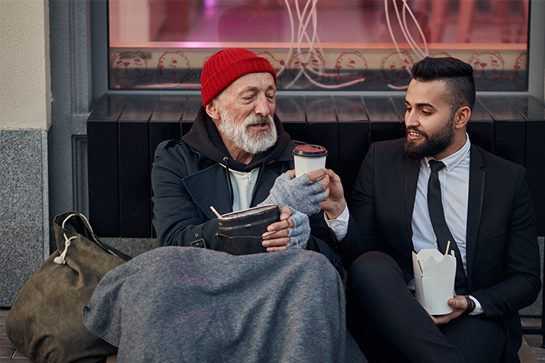This week Eccovia was in Baltimore for the 8th annual State Healthcare IT Connect Summit. The conference brought together leaders from State and Federal governments to discuss innovative solutions for State health IT initiatives, such as expanding care coordination for vulnerable populations to include the social determinants of health. Because we were in Baltimore this week, we wanted to highlight one of our clients who is finding innovative solutions for serving a vulnerable population: Baltimore HMIS.
On any given night in Baltimore it is estimated that there are nearly 4,000 men, women, and children who are homeless. In order to coordinate critical services for these individuals, care teams reach out to connect them with a variety of solutions including: shelters, transitional housing, rapid rehousing, permanent supportive housing, Housing Opportunities for Person with AIDS (HOPWA), meal programs, and eviction prevention. Each year through a network of partner providers, the Baltimore homeless services program delivers housing and supportive services to over 25,000 individuals and families. The end goal is to stop the cycle of homelessness by providing programs and services tailored for each individual. The Baltimore HMIS database is used by more than 40 organizations covering 140 programs that provide these essential services for homeless individuals and the Baltimore HMIS street outreach team plays a critical role in the city’s ability to provide these services.
Baltimore’s HMIS street outreach team reaches out to individuals living and sleeping outdoors to ensure they are able to access the care they need. The team uses ClientTrack HMIS to quickly enter information about unsheltered individuals which also includes creating an alias for individuals who haven’t yet been identified. Although the Department of Housing and Urban Development does not require HMIS providers to track individuals who have not had been officially identified yet, Baltimore sought to obtain a comprehensive view of all individuals experiencing homelessness and an understanding of how many encounters it took before the team successfully enrolled an individual in its programs.
In addition to homeless populations, coordinating care for all vulnerable individuals (the intellectually and developmentally disabled, for example, or individuals with substance use disorder) positively affects the entire community. On Wednesday, April 5, Samantha Cassista, Quality Improvement Specialist at Partnership for Successful Living, will be discussing the community care coordination effort in Nashua, New Hampshire to help people struggling with substance use disorder. To hear Samantha discuss how community collaboration and data sharing are saving lives and reducing costs please click here to view slides and here to listen to webinar.
Blog Resources
http://human-services.baltimorecity.gov/homeless-services/hmis



